Trend-spotting: Almost four in 10 (39%) of all the U.S. jobs lost since last February are in leisure and hospitality—triple the number of the next-hardest-hit industry.
U.S. Travel Association reports,”Other numbers underscore the particularly dire situation of Leisure & Hospitality compared to the rest of the U.S. jobs economy:
- The 23% of Leisure & Hospitality jobs lost since February 2020 is nearly double the industry with the next-worst job loss rate (mining and logging, 12%).
- Leisure & Hospitality’s 39% share of all U.S. unemployment is three times that of the industry with the second-biggest share (government, 13%).
- The 16% current unemployment rate in Leisure & Hospitality is almost three times the overall U.S. unemployment rate (6%).”
Roger Dow, president and CEO of the U.S. Travel Association, said in a statement: “The math is pretty easy: The U.S. economy won’t get back on track until the Leisure & Hospitality sector is back on track, and that’s going to take aggressive policy actions. Safely restarting travel needs to become a national priority, which means not only relief measures but pressing ahead on vaccinations and continuing to emphasize best health practices.”
Got a laptop? Internet access? OK, you’re all set. Spotify just announced its “Work From Anywhere” program for all 6,550 global employees. Travis Robinson, Global Head of Diversity, Inclusion, and Belonging says the strategy will promote work-life balance and employee happiness, among other benefits.
Spotify, headquartered in Stockholm, is protecting existing pay packets regardless of an employee’s geographic location.
“I believe #WorkFromAnywhere is an opportunity that speaks to diversity, inclusion and belonging,” said Robinson in a LinkedIn post.

The Remote Revolution: Plenty of raised eyebrows when Salesforce (36,000 employees) announced a permanent work-from-home solution last week. The company’s landmark headquarters tower, San Francisco’s tallest skyscraper, was only just completed in 2018. Facebook and Twitter also announced remote work flexibility, but with downward pay adjustments for employees that opt for alternative, less pricey locations. So, where to?
Related: “Goodbye NYC…hello, Montana?“



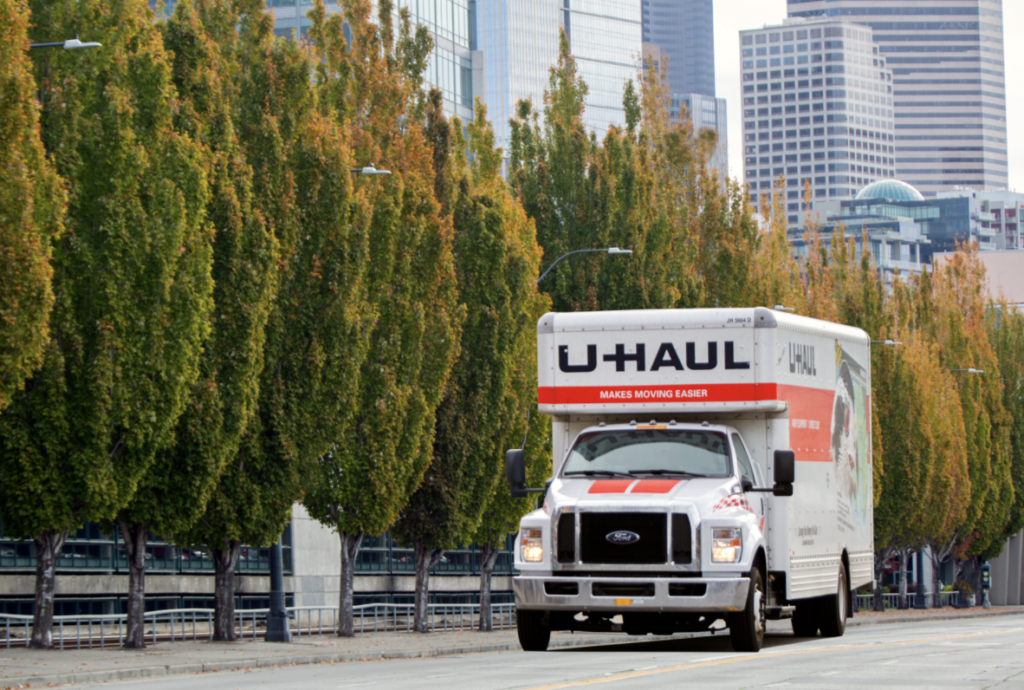
Hello, Generation-work-from-home. Coastal metro super powers like New York City, San Francisco and Los Angeles are shedding population in favor of Zoom towns, as employees relocate to less pricey places increasingly populated by permanently remote white collar workers.
Tracking one-way rentals, U-Haul’s annual migration report was released at the start of 2021, and for the first time, all roads led to (no income tax) Tennessee. Since 2016, do-it-yourself customers had made Texas and Florida their top two destinations, which dropped a place to second and third.
“Ohio, Arizona, Colorado, Missouri, Nevada, North Carolina and Georgia round out the top 10 states for 2020 growth as self-movers continue to migrate to the Southeast, as well as markets in the Southwest, Midwest and Rocky Mountain regions,” says the report.
Where are U-Haulers saying goodbye? California, by a wide margin, followed by Illinois. Read more here.




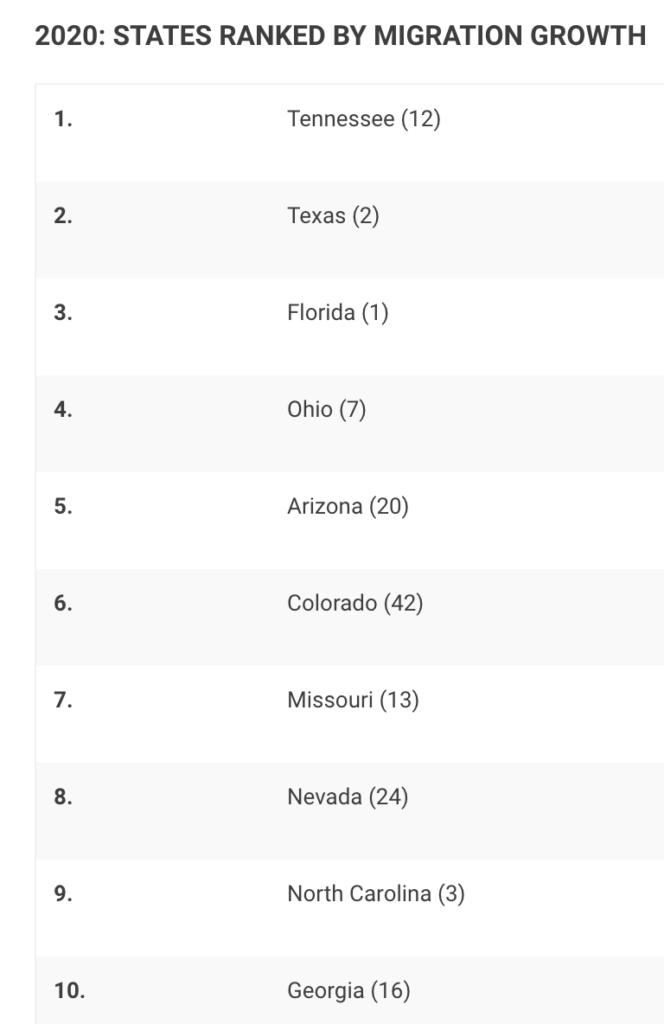

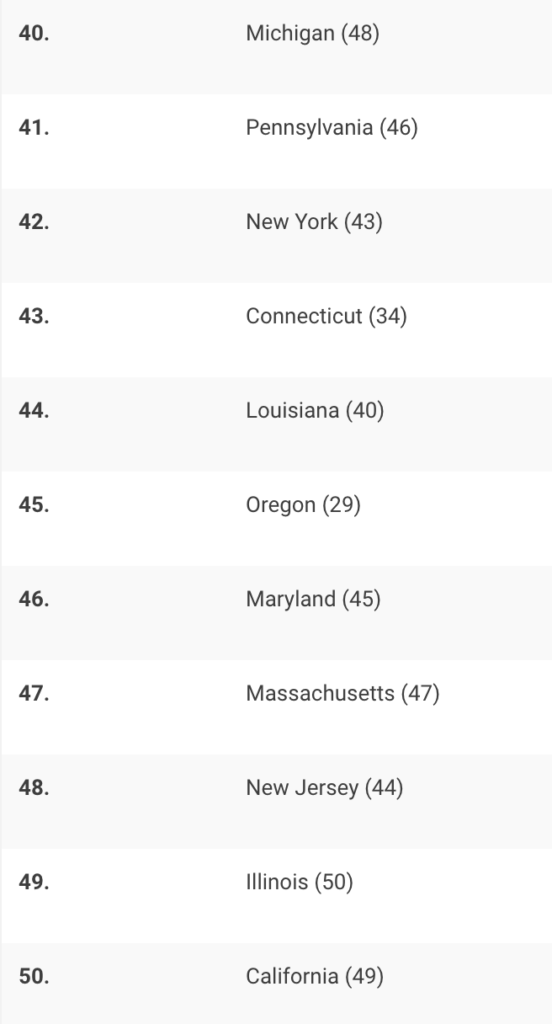
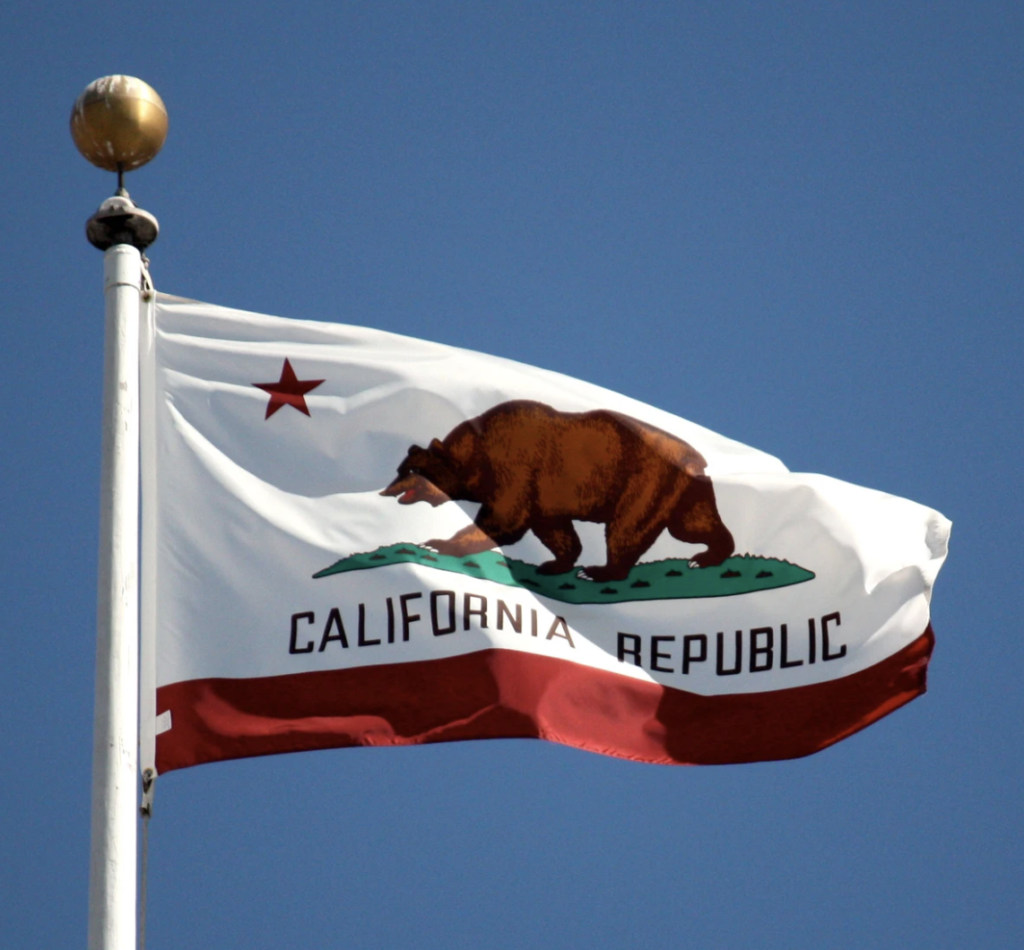




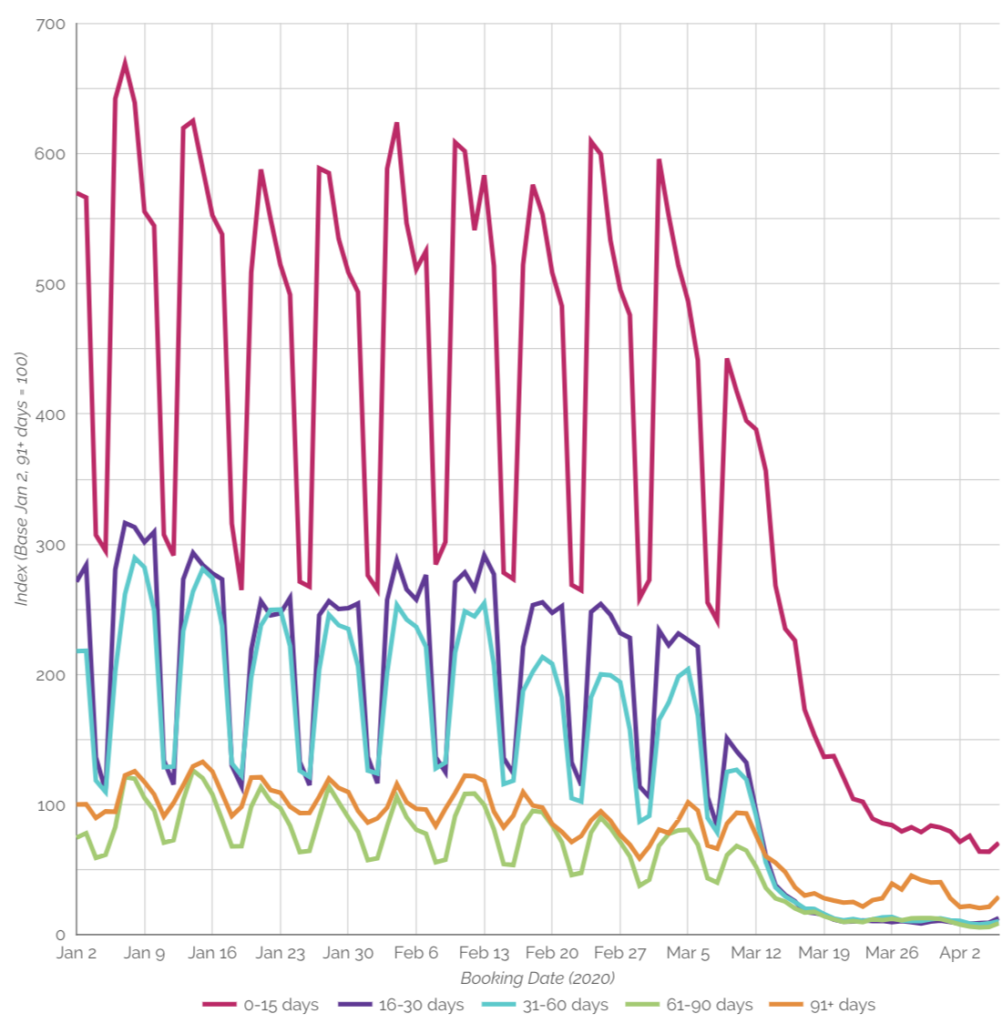




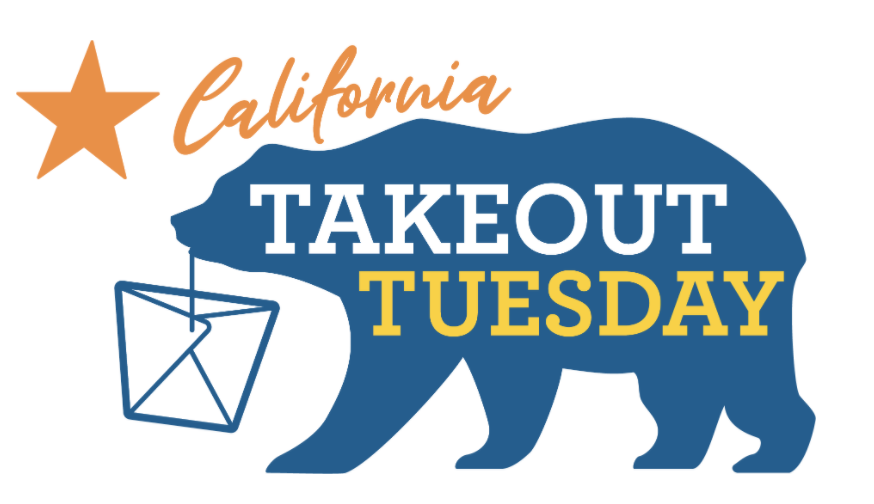





 Jake Steinman,
Jake Steinman,  William Pate, President and CEO of the Atlanta Convention & Visitors Bureau will serve as the 2018-2019 chair of Destinations International‘s board of directors. Other board officers include Craig Davis, VisitPittsburgh (chair-elect); Butch Spyridon, Nashville Convention & Visitors Corp. (secretary-treasurer); and Tammy Blount-Canavan, Monterey County CVB, (immediate past chair).
William Pate, President and CEO of the Atlanta Convention & Visitors Bureau will serve as the 2018-2019 chair of Destinations International‘s board of directors. Other board officers include Craig Davis, VisitPittsburgh (chair-elect); Butch Spyridon, Nashville Convention & Visitors Corp. (secretary-treasurer); and Tammy Blount-Canavan, Monterey County CVB, (immediate past chair). Jason Fulvi, CDME, the new president and CEO of Visit KC, will chair the Destinations International Foundation board of trustees for the same period. Others serving are John Groh, Rockford Area CVB (chair-elect); John Lambeth, Civitas Advisors, (secretary-treasurer); Stephanie Pace Brown, Explore Asheville immediate past chair); and John Percy, Destination Niagara USA (at-large officer).
Jason Fulvi, CDME, the new president and CEO of Visit KC, will chair the Destinations International Foundation board of trustees for the same period. Others serving are John Groh, Rockford Area CVB (chair-elect); John Lambeth, Civitas Advisors, (secretary-treasurer); Stephanie Pace Brown, Explore Asheville immediate past chair); and John Percy, Destination Niagara USA (at-large officer). Sheelagh Wylie has left the inbound side of the U.S. tourism business—and her job as vice president, business development and head of trade sales, Midway Attractions, North America, Merlin Entertainments—to join Visit Britain as chief marketing officer, Americas. She is based in New York. For the past 15 years Wylie had been with Merlin which includes Madame Tussauds among its 127 attractions, 19 hotels, and 7 holiday villages in 27 countries.
Sheelagh Wylie has left the inbound side of the U.S. tourism business—and her job as vice president, business development and head of trade sales, Midway Attractions, North America, Merlin Entertainments—to join Visit Britain as chief marketing officer, Americas. She is based in New York. For the past 15 years Wylie had been with Merlin which includes Madame Tussauds among its 127 attractions, 19 hotels, and 7 holiday villages in 27 countries. Fritz Smith has been named as the new executive director of the Central Pennsylvania Convention and Visitors Bureau. Smith has worked in Pennsylvania government as director of tourism operations and as deputy secretary for tourism, film, and economic development. He also has served as vice president of tourism for the Philadelphia Convention & Visitors Bureau and most recently was vice president of research and hotel initiatives for Visit Philadelphia.
Fritz Smith has been named as the new executive director of the Central Pennsylvania Convention and Visitors Bureau. Smith has worked in Pennsylvania government as director of tourism operations and as deputy secretary for tourism, film, and economic development. He also has served as vice president of tourism for the Philadelphia Convention & Visitors Bureau and most recently was vice president of research and hotel initiatives for Visit Philadelphia. Julie Calvert was named president and CEO of the Cincinnati CVB following a five-month executive search. Calvert had previously served as VP – Communications and Strategic Development for the bureau in 2011-2016. Dan Lincoln, who led the bureau for 11 years, stepped down at the end of 2017, citing health reasons.
Julie Calvert was named president and CEO of the Cincinnati CVB following a five-month executive search. Calvert had previously served as VP – Communications and Strategic Development for the bureau in 2011-2016. Dan Lincoln, who led the bureau for 11 years, stepped down at the end of 2017, citing health reasons.
 Memphis Convention & Visitors Bureau has rebranded as Memphis Tourism. including a new logo. The update follows months of data-driven research, stakeholder interviews, and audience testing by destination analysts in surveys with 800 potential visitors. President and CEO Kevin Kane, a 27-year veteran, and CMO Regena Bearden, a 30-year veteran, launched the new look for the “Home of Blues, Soul, and Rock ‘n’ Roll” in June.
Memphis Convention & Visitors Bureau has rebranded as Memphis Tourism. including a new logo. The update follows months of data-driven research, stakeholder interviews, and audience testing by destination analysts in surveys with 800 potential visitors. President and CEO Kevin Kane, a 27-year veteran, and CMO Regena Bearden, a 30-year veteran, launched the new look for the “Home of Blues, Soul, and Rock ‘n’ Roll” in June. Cheryl Y. Kilday, CDME, will leave in mid-October after eight years as president and CEO of Visit Spokane (WA) to become CEO of North Myrtle Beach Chamber of Commerce. A nationwide search for Visit Spokane expected to last 10-12 weeks is planned, while the interim role will be filled by TJ Hake, VP of Strategic Development and Operations.
Cheryl Y. Kilday, CDME, will leave in mid-October after eight years as president and CEO of Visit Spokane (WA) to become CEO of North Myrtle Beach Chamber of Commerce. A nationwide search for Visit Spokane expected to last 10-12 weeks is planned, while the interim role will be filled by TJ Hake, VP of Strategic Development and Operations. Marshall, Texas has named Mallori James as the new leader of Marshall (TX) Convention and Visitors Bureau as the new Tourism and Marketing Manager. The position is responsible for the leadership of the DMO, implementing a robust and creative marketing strategy to attract tourists, and enhancing nature, culture, and arts opportunities for city visitors and residents.
Marshall, Texas has named Mallori James as the new leader of Marshall (TX) Convention and Visitors Bureau as the new Tourism and Marketing Manager. The position is responsible for the leadership of the DMO, implementing a robust and creative marketing strategy to attract tourists, and enhancing nature, culture, and arts opportunities for city visitors and residents. Salesforce billionaire CEO Marc Benioff and his wife Lynne “sent shock waves from New York to San Francisco” with their purchase of the 95-year-old Time Magazine, one of the world’s most iconic magazine titles, reports Business Insider. Observers are left musing; will they go all-video with the $190 million purchase?
Salesforce billionaire CEO Marc Benioff and his wife Lynne “sent shock waves from New York to San Francisco” with their purchase of the 95-year-old Time Magazine, one of the world’s most iconic magazine titles, reports Business Insider. Observers are left musing; will they go all-video with the $190 million purchase?